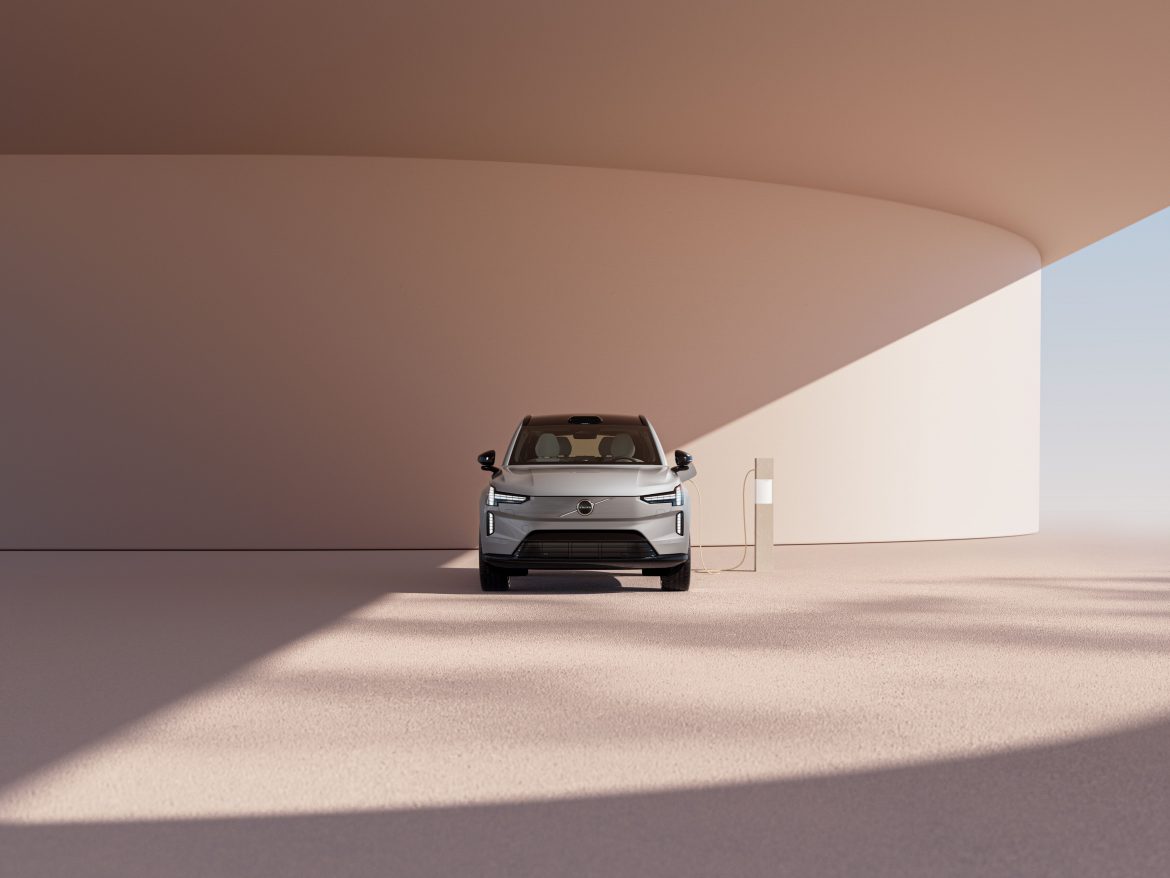Volvo Cars has launched a new business unit, Volvo Cars Energy Solutions, aimed at expanding the environmental potential of electric vehicles. This initiative seeks to explore how electric cars and their batteries can go beyond reducing emissions and become integral components of a more sustainable and efficient energy grid.
One of the key technologies at the heart of this endeavour is bi-directional charging. This innovation enables electric cars to contribute excess battery power to a compatible grid. By doing so, they can help balance the grid during peak demand periods, thus reducing the need for fossil fuel-generated electricity. The upcoming EX90 SUV will be the first Volvo car equipped with the necessary hardware for bi-directional charging, with software integration planned for the future.
In collaboration with Göteborg Energi Nät AB, a local grid company based in Gothenburg, Sweden, Volvo is embarking on one of the initial vehicle-to-grid (V2G) pilot programs. The objective is to test V2G technologies in real-world scenarios, both on the local energy grid and within homes with real customers. This pilot is deliberately employing a low-cost AC wallbox to accelerate the adoption of the technology.
The pilot program serves not only to secure the acceptance of grid companies but also to demonstrate to other grid operators the tangible benefits that V2G programs can provide. Additionally, it offers a testing ground for emerging technologies that are pivotal to the future of Volvo Cars, extending beyond the confines of research and development laboratories.
Alexander Petrofski, the head of Volvo Cars Energy Solutions, explains the concept of bi-directional charging, stating, “With bi-directional charging, you can use your car battery as an extra energy supply, for example to provide power to your home, other electric devices, or another electric Volvo car. The next step would be to enable this feature all around Sweden, and hopefully that will pave the way for even broader acceptance of similar charging and energy storage services around Europe.”
As Volvo Cars aims to become a fully electric car company by 2030, a significant number of electric Volvo cars will hit the roads in the coming years. These vehicles are projected to amass a collective battery capacity of around 50 GWh by the mid-2020s. Despite their substantial energy consumption, their flexible energy usage can be optimised through smart charging.
Data from Volvo’s electric vehicle fleet shows that the average daily drive in Europe consumes less than 10 kWh, with 90% of daily drives requiring less than 20 kWh. This highlights a considerable surplus of battery capacity that can be repurposed for various applications, promising potential economic and environmental benefits.

Bi-directional charging is integral to leveraging this surplus capacity, allowing customers to repurpose the energy stored in their electric Volvo’s battery for various applications, including contributing excess energy back to the grid during peak demand periods, for which they receive compensation.
Petrofski emphasises the significance of smart charging, explaining, “With the help of smart charging, you can charge your electric Volvo at the best available time from a sustainability and economy perspective. Now imagine you could use that energy later, perhaps during peak times when prices are higher and the energy mix less sustainable. The idea of building an energy ecosystem around your car and its batteries is to save money and reduce CO2 emissions, while energy firms benefit from reduced grid investments and a lower overall environmental impact.”
V2G is just one facet of the comprehensive ecosystem envisioned under the Volvo Cars Energy Solutions banner. The company is also exploring vehicle-to-home (V2H) products that enable customers to use their electric vehicle’s battery to power their homes, potentially reducing energy costs. Furthermore, they are considering vehicle-to-load (V2L) services, where an electric car’s battery can power camping equipment or recharge electric bicycles.
Over time, Volvo Cars Energy Solutions anticipates generating significant annual revenues from energy-related products and services. This initiative also aims to introduce entirely new products not previously offered by Volvo Cars. In doing so, Energy Solutions is poised to add value to the core business, enhance the daily lives of customers, and make a substantial contribution to a more sustainable environment.



